Home Remedies For Bronchitis: 10 Effective Natural Treatments
A comprehensive guide to breathing easy and maintaining respiratory health naturally.

Image: Shutterstock
Bronchitis may cause breathing issues and respiratory troubles, which can be extremely stressful. Luckily, a few home remedies for bronchitis may ease the symptoms and provide relief. This inflammatory condition affects the bronchi, the tubes connecting the lungs to the nose and mouth. If you are looking for ways to relieve bronchitis symptoms, read this article and learn more about the treatment options and prevention tips for relief.
In This Article
What Causes Acute Bronchitis?
- Viral Infection
Research shows that between 85 and 95 percent of acute bronchitis cases in adults are caused by viruses which are also responsible for causing flu or the common cold (1).
- Bacterial Infection
Certain bacterial infections can also develop into acute bronchitis. It is rare, but generally follows bronchitis caused by a virus. Mycoplasma pneumoniae, Chlamydia pneumoniae, and Bordetella pertussis (that causes whooping cough) are some of the common bacteria which may cause bronchitis (1).
- Irritants
Inhaling irritants like smoke, smog, or chemical fumes may cause inflammation in the trachea and bronchial tubes, leading to chronic bronchitis. Chronic bronchitis is a risk factor for acute bronchitis (2).
- Pre-existing Lung Conditions
Pre-existing conditions like a viral upper respiratory infection, asthma, or chronic bronchitis may be a cause of acute bronchitis (3) (4).
Data collected by the American Lung Association indicates that around 9.0 million adults in the United States (5.0% of the adult population) were diagnosed with chronic bronchitis in 2018. 2.4% of males (2,854,929 individuals) and 4.8% of females (6,148,358 individuals) reported having chronic bronchitis. Importantly, females were twice as likely as males to receive a diagnosis of chronic bronchitis.
Your body may give out clues (symptoms) when you have developed bronchitis. Read on to see what those are.
Key Takeaways
- Bronchitis can be caused by a viral infection, bacterial infection, irritants, and pre-existing lung conditions.
- Persistent cough, breathing difficulties, mucus formation and expulsion, chest discomfort or heaviness, and mild fever with chills are some symptoms of Bronchitis.
- Home remedies for Bronchitis include humidifiers, essential oils, warm liquids, honey and ginger.
Symptoms Of Bronchitis
Bronchitis may initially be confused with the common cold or flu as you may experience some similar symptoms like a runny nose, headache, or sore throat. However, there are some distinguishing symptoms of bronchitis (5). They include:
- persistent cough
- breathing difficulties
- Wheezing that sounds like whistling
- mucus formation and expulsion
- chest discomfort or heaviness
- mild fever with chills
So, how long should you expect these symptoms to linger before you get better?
How Long Do Symptoms Of Bronchitis Last?
Bronchitis can be of two types: acute or chronic. How long the symptoms of bronchitis will last depends solely on which type you’re suffering from.
Acute bronchitis can generally last anywhere between 10 and 14 days, though some symptoms may persist up to 3 weeks (6). It is important to note that acute bronchitis caused by a virus is contagious only till the symptoms go away. You may experience a persistent, dry cough following bronchitis that usually remains for up to 3 or 4 weeks. This cough is generally caused by irritated bronchial tubes and not an active infection, and so is not a sign of contagiousness.
Chronic bronchitis on the other hand is a long-lasting form of COPD (chronic obstructive pulmonary disease) and may last for three months at least. If you have chronic bronchitis, you may experience frequent episodes of bronchitis for two years or more even after your recovery (7).
Then, what kind of demographic is more susceptible to bronchitis?
Who Does Bronchitis Affect?
Bronchitis can affect people of all ages. However, it is more commonly documented in children below the age of five years. Also, there’s a higher risk of bronchitis during the winters, and typically begins after an individual contracts a cold, flu, or sore throat issues.
So, is there a way to diagnose the severity of the condition?
How Is Bronchitis Diagnosed?
Your doctor will inquire about your medical history and conduct a physical examination. This may include blood tests to look for infections and chest X-rays to monitor the condition of your lungs. It is generally not an urgent issue unless your tests show other conditions such as pneumonia.
Typically, home remedies for bronchitis may provide symptomatic treatment and support during the recovery period.
Home Remedies For Bronchitis
- Humidifier
There is some evidence to suggest that humidification may help patients fight the severe symptoms of bronchitis. A humidifier may reduce inflammation and help in the expulsion of mucus (8). Use a cool-mist humidifier or a vaporizer to keep the environment moist. However, there are certain risks to using a humidifier, so make sure you follow the manufacturer’s guidelines for use, cleaning, and maintenance.
- Essential Oils
Essential oils of myrtle, orange, eucalyptus, thyme, and nigella sativa have been studied and proven to be beneficial as a remedy for bronchitis. The antimicrobial and anti-inflammatory properties of these oils play important roles in relieving the symptoms of acute and chronic bronchitis. It is best to inhale essential oils. You can directly take a few deep inhales of your chosen essential oil straight from the bottle. Another alternative is to put a couple of drops of essential oil into a bowl of hot water and inhale the steam after covering your head with a towel. For the easiest way, put essential oils in a diffuser during bedtime (9), (10).
- Warm Liquids
Research confirms that a warm drink can help combat most of the symptoms of cold and flu, like a runny nose, headache, sore throat, and more (11). Since bronchitis is often caused by the same virus that causes cold and flu and shares symptoms, drinking warm fluids may be one of the easiest home remedies for bronchitis.
 Pro Tip
Pro Tip- Honey
Honey has anti-microbial, anti-inflammatory, and antioxidant properties, which make it a great natural option for bronchitis treatment. It is often claimed to be effective in providing relief to patients with asthma. Plus, if you are wondering how to stop coughing, honey is your best bet. In a study conducted on children, oral consumption of honey was found to be the most effective at reducing cough and providing relief when taken before bedtime ( 12), (13). Add honey to ginger or turmeric tea or simply have a spoonful for quick relief from the cough that accompanies bronchitis.
- Ginger
Research suggests that ginger may have an anti-inflammatory effect and reduce the severity of bronchitis symptoms (14). It also works as a great home remedy for phlegm (mucus). You can make a soothing cup of ginger tea by boiling ginger in water for five minutes. You can also chew on a piece of raw ginger dipped in honey. Alternatively, use ginger in your food, especially stir-fries or soups.
- Turmeric
Turmeric is a rich source of antioxidants, which can support your immune function (15), (16). Additionally, it has anti-inflammatory properties. A study comparing the anti-inflammatory effects of turmeric, ginger and a commonly prescribed drug found that turmeric had more anti-inflammatory potential than the other two ( 17). These properties of turmeric may help alleviate the symptoms of bronchitis and help in faster recovery. It is also a great home remedy for asthma. To take turmeric as one of the natural home remedies for bronchitis, use grated fresh turmeric root to make a tea or add sliced turmeric to your salad. You can also use powdered turmeric in your fried egg, stir-fries, chicken stew, or bone broths.

- Garlic
Garlic for bronchitis is an effective option, especially if you have a case of viral infection-related bronchitis. An animal study shows that garlic can significantly inhibit the growth of a coronavirus called infectious bronchitis virus (IBV) that causes bronchitis. While further studies are needed to prove the effect on humans, this throws light on garlic’s potential antimicrobial activity (18). It is best if you can have raw garlic. To temper the taste a little, you can dip a clove of peeled garlic in honey and chew on it. If that seems a little too unappetizing, you can add minced garlic to any stir-fries, pasta, noodles, soup, dips, or salads to get its benefits.
- Steam
Steam inhalation is a traditional home remedy for colds and flu. It is also a great home remedy for chest congestion. It can help break up mucus and clear the sinuses. A study found that the efficacy of steam inhalation with holy basil oil or leaves is more effective in providing relief from cough and congestion than steam alone (19). Add a handful to boiling water and let it steep for a minute off the heat. Then put a towel over your head and inhale the vapor. If you are using the oil, add a few drops to the bowl of water and inhale.
- Long Pepper
Long pepper is widely used in Ayurveda and traditional medicines as a rejuvenator for issues related to the lungs, such as cough, asthma, and bronchitis. It is also helpful for removing phlegm. Research suggests that piperine, one of the primary active constituents of long pepper, has potent anti-inflammatory properties which may be responsible for its benefits in bronchitis (20). You can take half a teaspoon of long pepper powder mixed with honey twice or thrice daily for relief from bronchitis symptoms.
- Cinnamon
Cinnamon bark is widely used in traditional medicine for the treatment of health disorders related to chronic inflammation, such as bronchitis and asthma (21). Consuming cinnamon tea or cinnamon powder with honey may help relieve the symptoms associated with chronic and acute bronchitis due to the anti-inflammatory properties of cinnamon polyphenols.
These remedies may help soothe symptoms of bronchitis, but there are also over-the-counter options that can provide relief. For example, dextromethorphan can help suppress a cough, while paracetamol or ibuprofen can reduce fever and body aches. In some cases, medications like beta-agonists, steroids, or antibiotics may be needed, but these require a prescription and should only be used if recommended by a doctor (5). Always consult a healthcare professional for the best treatment plan.
 Pro Tip
Pro TipPrevention is better than cure, as the saying goes. But, can bronchitis be prevented? If yes, then how?
Prevention Tips
There are a number of ways in which you can reduce your risk of developing bronchitis.
- Avoid irritants.
- Quit smoking.
- Improve your immunity.
- Get vaccinated.
- Limit exposure to bacteria and viruses by washing hands regularly and maintaining personal hygiene.
Despite preventive measures and using home remedies, you may have the symptoms of bronchitis that don’t seem to improve. It may be a signal of some complication.
Complications Associated With Bronchitis
Bronchitis may lead to pneumonia, which is a serious complication requiring medical help and even hospitalization in some cases. In rare cases, it may also lead to severe respiratory syndrome or respiratory failure (5).
So, how do you decide when to call for professional medical assistance?
When To See A Doctor
The coughing and discomfort from bronchitis may keep you up at night and lead to sleep deprivation. If you feel that your condition is interfering with your sleep, you need to consult your doctor. You would also need to get in touch with your doctor immediately if you experience any of the severe symptoms of bronchitis like (5):
- A cough or wheezing that lasts beyond three weeks.
- Spotting blood as you cough.
- Experiencing shortness of breath.
- Fever that is difficult to subside.
- Noticing unexplained weight loss.
- A deep, barking cough.
Acute bronchitis may often be the gateway to chronic bronchitis. In case you experience acute bronchitis frequently, consult your doctor. It may also lead to pneumonia, so you need to monitor your recovery and reach out for professional help if you believe your situation is not improving with home remedies for bronchitis.
The worrying symptoms of bronchitis may have gotten you tensed and looking for a quick way to cure bronchitis. Is there any? Let’s find out.
What Is The Fastest Way To Cure Bronchitis?
Are you wondering how to get rid of bronchitis or how to cure bronchitis fast? As with all physical conditions, recovery happens at its own pace. The best you can do to recover as quickly as possible from bronchitis is to drink plenty of warm fluids, get rest and stay away from smoke or other respiratory irritants. You can also use the home remedies for bronchitis mentioned above to speed up your recovery. Antibiotics are often prescribed to treat bronchitis but whether their benefits outweigh their adverse effects is debatable (22). If you think that you are not recovering with time, consult your physician.
Bronchitis is a respiratory disorder that resembles the flu. However, it is marked by a persistent cough, chest discomfort, and breathing difficulties. It is usually a sign of an infection and can be acute or chronic in nature. You can ease the symptoms of bronchitis by following these simple home remedies. These remedies are effective as they use ingredients with antimicrobial, anti-inflammatory, and antioxidant properties that accelerate the healing process. It is recommended that you consult your healthcare provider if the cough interferes with your sleep or if you experience severe symptoms.
Frequently Asked Questions
Is bronchitis a side effect of Covid-19?
Bronchitis may be a symptom of Covid-19 as coronaviruses that affect the respiratory system may also cause acute bronchitis.
Do I need antibiotics for bronchitis?
Acute bronchitis caused as a result of viral infection does not require treatment with antibiotics unless there is an increased risk of secondary bacterial infections. However, bronchitis that stems from bacterial infections may require the use of antibiotics.
Will bronchitis go away by itself?
Acute bronchitis caused by viral infections is self-limiting and can go away by itself with self-care such as rest and hydration.
Watch the following video to get expert advice on treating bronchitis. It also shares practical tips and reliable insights to address bronchitis concerns and how you can manage its symptoms with the right medications effectively.
References
Articles on StyleCraze are backed by verified information from peer-reviewed and academic research papers, reputed organizations, research institutions, and medical associations to ensure accuracy and relevance. Read our editorial policy to learn more.
- Acute bronchitis
https://www.ncbi.nlm.nih.gov/labs/pmc/articles/PMC2278319/ - Vapor, Dust and Smoke Exposure in relation to adult-onset asthma and chronic respiratory symptoms: The Singapore Chinese Health Study
https://www.ncbi.nlm.nih.gov/labs/pmc/articles/PMC1509764/ - Muscle and Mucous Gland Size in the Major Bronchi of Patients with Chronic Bronchitis, Asthma and Asthmatic Bronchitis
https://www.atsjournals.org/doi/abs/10.1164/arrd.1971.104.3.331 - Upper Respiratory Tract Infection
https://www.ncbi.nlm.nih.gov/books/NBK532961/ - Acute Bronchitis
https://www.ncbi.nlm.nih.gov/books/NBK448067/ - Uncomplicated acute bronchitis
https://pubmed.ncbi.nlm.nih.gov/11119400/ - Chronic Bronchitis
https://www.ncbi.nlm.nih.gov/books/NBK482437/ - The clinical utility of long-term humidification therapy in chronic airway disease
https://pubmed.ncbi.nlm.nih.gov/20144858/ - Anti-inflammatory effects of myrtol standardized and other essential oils on alveolar macrophages from patients with chronic obstructive pulmonary disease
https://eurjmedres.biomedcentral.com/articles/10.1186/2047-783X-14-S4-205 - Essential oils in the treatment of respiratory tract diseases highlighting their role in bacterial infections and their anti‐inflammatory action: a review
https://www.ncbi.nlm.nih.gov/pmc/articles/PMC7163989/ - The effects of a hot drink on nasal airflow and symptoms of common cold and flu
https://pubmed.ncbi.nlm.nih.gov/19145994/ - Honey and Health: A Review of Recent Clinical Research
https://www.ncbi.nlm.nih.gov/labs/pmc/articles/PMC5424551/ - Effect of honey, dextromethorphan, and no treatment on nocturnal cough and sleep quality for coughing children and their parents
https://pubmed.ncbi.nlm.nih.gov/18056558/ - Antiinflammatory effects of ginger and some of its components in human bronchial epithelial (BEAS-2B) cells
https://pubmed.ncbi.nlm.nih.gov/21698672/ - Anti-inflammatory and anti-oxidant properties of Curcuma longa (turmeric) versus Zingiber officinale (ginger) rhizomes in rat adjuvant-induced arthritis
https://pubmed.ncbi.nlm.nih.gov/21120596 - Antioxidant Properties of Popular Turmeric (Curcuma longa) Varieties from Bangladesh
https://www.hindawi.com/journals/jfq/2017/8471785/ - Effects of dietary antioxidants on the immune function of middle-aged adults
https://pubmed.ncbi.nlm.nih.gov/10343344/ - The effect of Allium sativum (Garlic) extract on infectious bronchitis virus in specific pathogen free embryonic egg
https://pubmed.ncbi.nlm.nih.gov/27516987/ - A comparative study to assess the effect of steam inhalation v/s Tulsi leaves inhalation on the sign and symptoms of cold and cough among adult group in selected areas of Pune city
https://www.medicinesjournal.com/archives/2017/vol2/issue2/2-3-13/ - Overview for various aspects of the health benefits of Piper longum linn. fruit
https://pubmed.ncbi.nlm.nih.gov/21704957/ - Chapter 30. Anti-Inflammatory Properties of Cinnamon Polyphenols and their Monomeric Precursors
https://www.researchgate.net/publication/259742851_Chapter_30_Anti-Inflammatory_Properties_of_Cinnamon_Polyphenols_and_their_Monomeric_Precursors - Antibiotics for acute bronchitis
https://www.ncbi.nlm.nih.gov/labs/pmc/articles/PMC6481481/
Read full bio of Dr. Zeel Gandhi
Read full bio of Sanchari Bhattacharya
Read full bio of Arshiya Syeda
Read full bio of Dipti Sharma





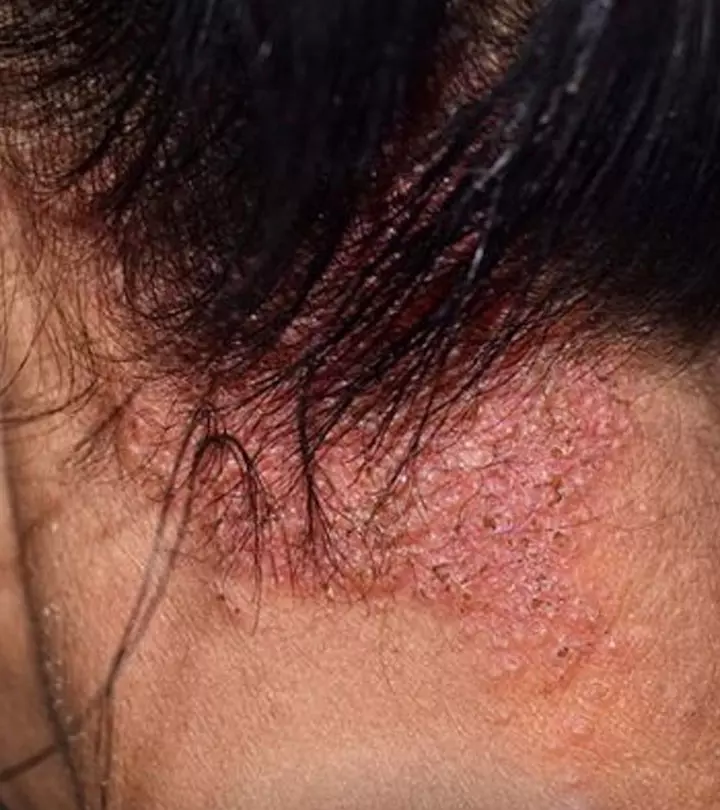

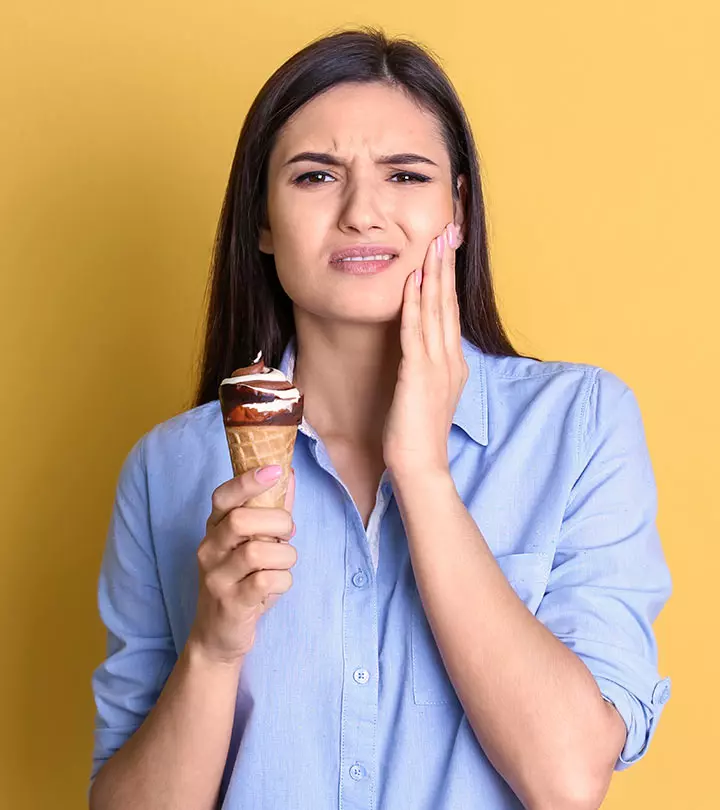
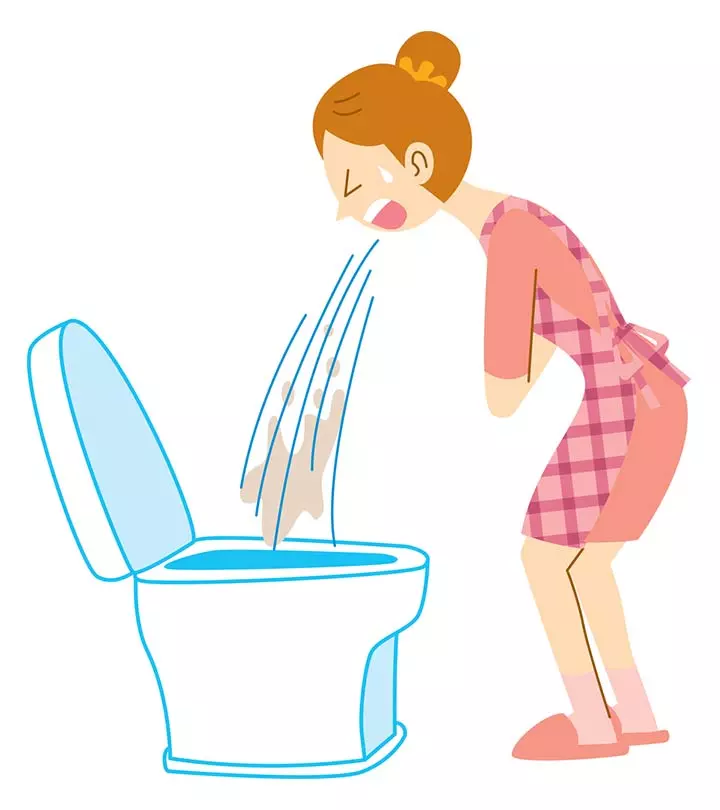
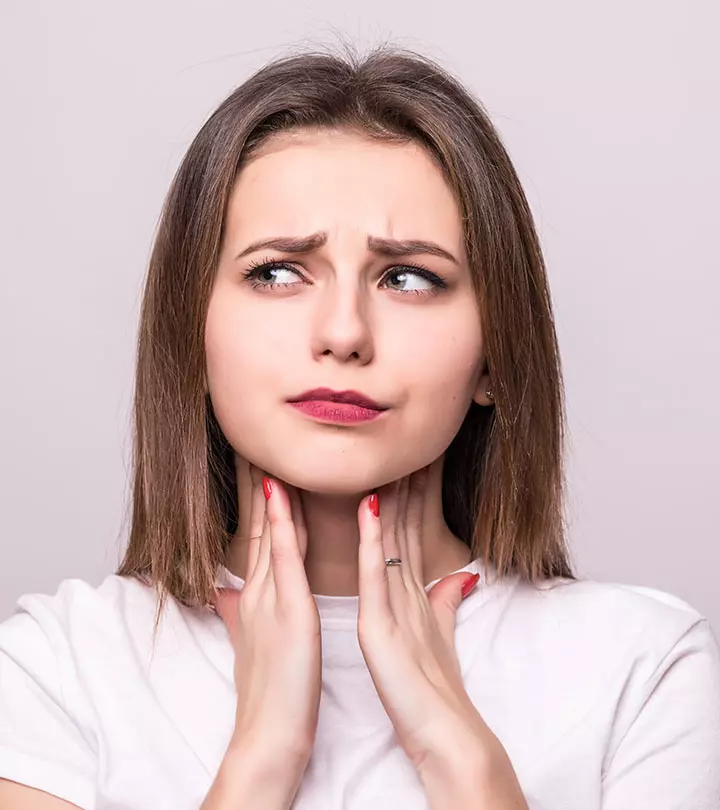







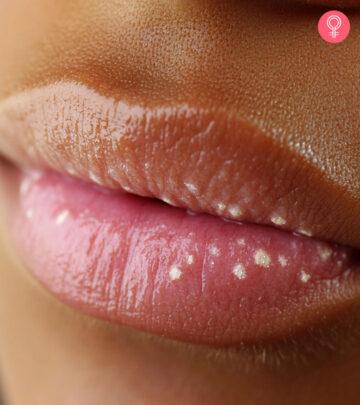


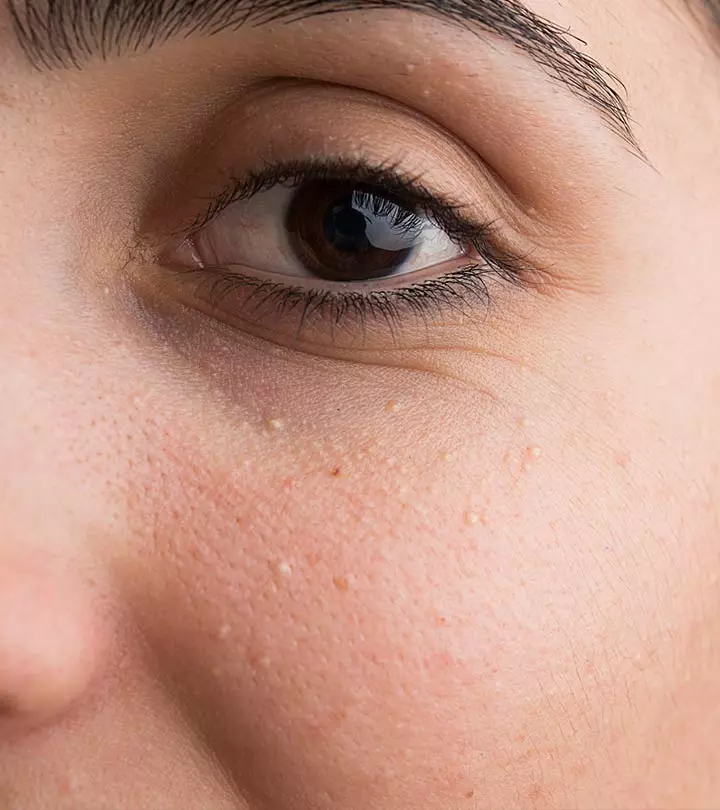





Community Experiences
Join the conversation and become a part of our empowering community! Share your stories, experiences, and insights to connect with other beauty, lifestyle, and health enthusiasts.